50 start with R start with R
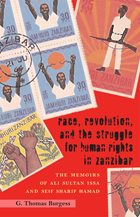
Zanzibar has had the most turbulent postcolonial history of any part of the United Republic of Tanzania, yet few sources explain the reasons why. The current political impasse in the islands is a contest over the question of whether to revere and sustain the Zanzibari Revolution of 1964, in which thousands of islanders, mostly Arab, lost their lives. It is also about whether Zanzibar’s union with the Tanzanian mainland—cemented only a few months after the revolution—should be strengthened, reformed, or dissolved. Defenders of the revolution claim it was necessary to right a century of wrongs. They speak the language of African nationalism and aspire to unify the majority of Zanzibaris through the politics of race. Their opponents instead deplore the violence of the revolution, espouse the language of human rights, and claim the revolution reversed a century of social and economic development. They reject the politics of race, regarding Islam as a more worthy basis for cultural and political unity.
From a series of personal interviews conducted over several years, Thomas Burgess has produced two highly readable first-person narratives in which two nationalists in Africa describe their conflicts, achievements, failures, and tragedies. Their life stories represent two opposing arguments, for and against the revolution. Ali Sultan Issa traveled widely in the 1950s and helped introduce socialism into the islands. As a minister in the first revolutionary government he became one of Zanzibar’s most controversial figures, responsible for some of the government’s most radical policies. After years of imprisonment, he reemerged in the 1990s as one of Zanzibar’s most successful hotel entrepreneurs. Seif Sharif Hamad came of age during the revolution and became disenchanted with its broken promises and excesses. In the 1980s he emerged as a reformist minister, seeking to roll back socialism and authoritarian rule. After his imprisonment he has ever since served as a leading figure in what has become Tanzania’s largest opposition party
As Burgess demonstrates in his introduction, both memoirs trace Zanzibar’s postindependence trajectory and reveal how Zanzibaris continue to dispute their revolutionary heritage and remain divided over issues of memory, identity, and whether to remain a part of Tanzania. The memoirs explain how conflicts in the islands have become issues of national importance in Tanzania, testing that state’s commitment to democratic pluralism. They engage our most basic assumptions about social justice and human rights and shed light on a host of themes key to understanding Zanzibari history that are also of universal relevance, including the legacies of slavery and colonialism and the origins of racial violence, poverty, and underdevelopment. They also show how a cosmopolitan island society negotiates cultural influences from Africa, the Middle East, Asia, and Europe.
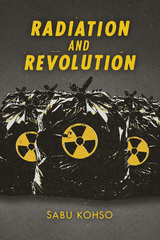
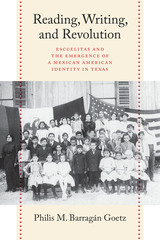
2022 National Association for Chicana and Chicano Studies Book Award
Tejas Foco Non-fiction Book Award, National Association for Chicana and Chicano Studies
2021 Tejano Book Prize, Tejano Genealogy Society of Austin
2021 Jim Parish Award for Documentation and Publication of Local and Regional History, Webb County Heritage Foundation
2021 Runner-up, Ramirez Family Award for Most Significant Scholarly Book
The first book on the history of escuelitas, Reading, Writing, and Revolution examines the integral role these grassroots community schools played in shaping Mexican American identity.
Language has long functioned as a signifier of power in the United States. In Texas, as elsewhere in the Southwest, ethnic Mexicans’ relationship to education—including their enrollment in the Spanish-language community schools called escuelitas—served as a vehicle to negotiate that power. Situating the history of escuelitas within the contexts of modernization, progressivism, public education, the Mexican Revolution, and immigration, Reading, Writing, and Revolution traces how the proliferation and decline of these community schools helped shape Mexican American identity.
Philis M. Barragán Goetz argues that the history of escuelitas is not only a story of resistance in the face of Anglo hegemony but also a complex and nuanced chronicle of ethnic Mexican cultural negotiation. She shows how escuelitas emerged and thrived to meet a diverse set of unfulfilled needs, then dwindled as later generations of Mexican Americans campaigned for educational integration. Drawing on extensive archival, genealogical, and oral history research, Barragán Goetz unravels a forgotten narrative at the crossroads of language and education as well as race and identity.

Through archival research, close textual reading, and an analysis of visual and aural performance artifacts, author Jonathan Shandell demonstrates how these artists negotiated a space on the public stage of the United States for cultivating radical Black aesthetic exploration and a spirit of courageous antiracist resistance. Readying the Revolution provides new insights into the activism and accomplishments of African American artists whose work helped lay the groundwork for a Black Nationalist cultural revolution, but whose influence has yet to receive its due recognition.

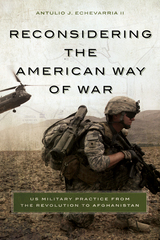
Challenging several longstanding notions about the American way of war, this book examines US strategic and operational practice from 1775 to 2014. It surveys all major US wars from the War of Independence to the campaigns in Iraq and Afghanistan, as well as most smaller US conflicts to determine what patterns, if any, existed in American uses of force. Contrary to many popular sentiments, Echevarria finds that the American way of war is not astrategic, apolitical, or defined by the use of overwhelming force. Instead, the American way of war was driven more by political considerations than military ones, and the amount of force employed was rarely overwhelming or decisive.
As a scholar of Clausewitz, Echevarria borrows explicitly from the Prussian to describe the American way of war not only as an extension of US policy by other means, but also the continuation of US politics by those means. The book’s focus on strategic and operational practice closes the gap between critiques of American strategic thinking and analyses of US campaigns. Echevarria discovers that most conceptions of American strategic culture fail to hold up to scrutiny, and that US operational practice has been closer to military science than to military art.
Providing a fresh look at how America’s leaders have used military force historically and what that may mean for the future, this book should be of interest to military practitioners and policymakers, students and scholars of military history and security studies, and general readers interested in military history and the future of military power.

Red Silk is a history of China’s Yangzi Delta silk industry during the wars, crises, and revolutions of the mid-twentieth century. Based on extensive research in Chinese archives and focused on the 1950s, the book compares two very different groups of silk workers and their experiences in the revolution. Male silk weavers in Shanghai factories enjoyed close ties to the Communist party-state and benefited greatly from socialist policies after 1949. In contrast, workers in silk thread mills, or filatures, were mostly young women who lacked powerful organizations or ties to the revolutionary regime. For many filature workers, working conditions changed little after 1949 and politicized production campaigns added a new burden within the brutal and oppressive factory regime in place since the nineteenth century.
Both groups of workers and their employers had to adapt to rapidly changing circumstances. Their actions—protests, petitions, bribery, tax evasion—compelled the party-state to adjust its policies, producing new challenges. The results, though initially positive for many, were ultimately disastrous. By the end of the 1950s, there was widespread conflict and deprivation among silk workers and, despite its impressive recovery under Communist rule, the industry faced a crisis worse than war and revolution.


In seventeenth- and eighteenth-century England and America, established society branded as "enthusiasts" those unconventional but religiously devout extremists who stepped across orthodox lines and claimed an intimate, emotional relationship with God. John of Leyden, Anne Hutchinson, William Penn, and George Whitefield all shared the label "enthusiast." This book is a study of the enthusiasts who migrated to the American colonies as well as those who emergedthere--from Pilgrim Fathers to pietistic Moravians, from the martyr-bound Quakers to heaven-bent revivalists of the 1740s.
This study of the role of religious enthusiasm in early America tells us much about English attitudes toward religion in the New World and about the vital part it played in the lives of the colonists. Both friends and enemies of enthusiasm revealed in their arguments and actions their own conceptions of the America they inhabited. Was religion in America to be an extension of Old World institutions or truly a product of the New World? Would enthusiasm undermine civilized institutions, not only established churches, but government, social structure, morality, and the economy as well? Calling enthusiasts first heretics, then subversives and conspirators, conventional society sought ways to suppress or banish them. By 1776 enthusiasm had spilled over into politics and added a radical dimension to the revolutionary struggle.
This timely exploration of the effect of radical religion on the course of early American history provides essential historical perspective to the current interest in popular religion.
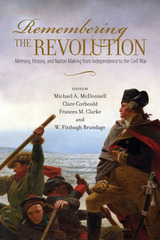
Recollections of the Revolution did not always take today's form. In this lively collection of essays, historians and literary scholars consider how the first three generations of American citizens interpreted their nation's origins. The volume introduces readers to a host of individuals and groups both well known and obscure, from Molly Pitcher and "forgotten father" John Dickinson to African American Baptists in Georgia and antebellum pacifists. They show how the memory of the Revolution became politicized early in the nation's history, as different interests sought to harness its meaning for their own ends. No single faction succeeded, and at the outbreak of the Civil War the American people remained divided over how to remember the Revolution.

Approximately fifty historical novels dealing with the American Revolution were published in the United States from 1896 to 1906. Benjamin S. Lawson critically examines the narrative strategies employed in these works and the ways in which fiction is made to serve the purpose of vivifying national history.
Writing within the conventions of the historical romance, these authors created plots that reflect the enveloping concerns of the War for Independence, such as the young American woman who often must choose between suitors on opposite sides in the wider conflict.
Lawson concludes that these works reassured readers of the worth of an Anglo-American heritage. They were escapist fantasies to the degree that they failed to confront contemporary realities of crisis and change: the New Immigration, urbanization and industrialization, labor strife, the plight of the poor, and agitation on behalf of women and ethnic minorities.

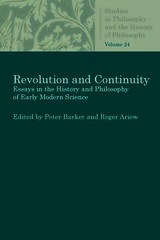
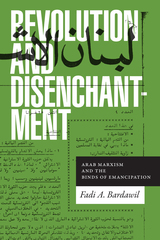
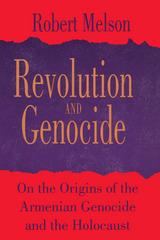
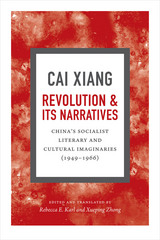
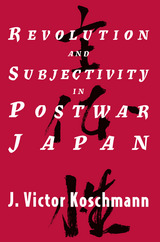
In a major contribution to modern Japanese intellectual history, J. Victor Koschmann analyzes the debate over subjectivity. He traces the arguments of intellectuals from various disciplines and political viewpoints, and finds that despite their stress on individual autonomy, they all came to define subjectivity in terms of deterministic historical structures, thus ultimately deferring the possibility of radical change in Japan.
Establishing a basis for historical dialogue about democratic revolution, this book will interest anyone concerned with issues of nationalism, postcolonialism, and the formation of identities.
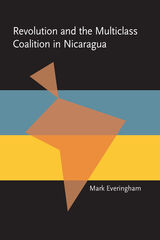

Halliday begins by tracing the origins and evolution of the modern concept of “revolution” and placing it in historical context. Arguing that revolution is central to any understanding of international relations, he examines the internationalist ideology of revolutionaries who are committed to promoting change elsewhere by exposing revolution. In contrast with the claims of revolutionaries and counterrevolutionaries alike, he sees revolutions both as part of an internationalist social conflict and as a challenge to the system of states. Chapters on the distinct foreign policies of revolutionary states are followed by discussions of war, counterrevolution, and postrevolutionary transformation. The study concludes with a reassessment of the place of revolution within international relations theory and in modern history, drawing out implications for their incidence and character in the twenty-first century.
Students and scholars of international relations, political science, sociology, and history will value this major contribution to understanding worldwide developments in government and society.
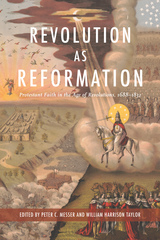
Revolution as Reformation: Protestant Faith in the Age of Revolutions, 1688–1832 highlights the role that Protestantism played in shaping both individual and collective responses to revolution. These essays explore the various ways that the Protestant tradition, rooted in a perpetual process of recalibration and reformulation, provided the lens through which Protestants experienced and understood social and political change in the Age of Revolutions. In particular, they call attention to how Protestants used those changes to continue or accelerate the Protestant imperative of refining their faith toward an improved vision of reformed religion.
The editors and contributors define faith broadly: they incorporate individuals as well as specific sects and denominations, and as much of “life experience” as possible, not just life within a given church. In this way, the volume reveals how believers combined the practical demands of secular society with their personal faith and how, in turn, their attempts to reform religion shaped secular society.
The wide-ranging essays highlight the exchange of Protestant thinkers, traditions, and ideas across the Atlantic during this period. These perspectives reveal similarities between revolutionary movements across and around the Atlantic. The essays also emphasize the foundational role that religion played in people’s attempts to make sense of their world, and the importance they placed on harmonizing their ideas about religion and politics. These efforts produced novel theories of government, encouraged both revolution and counterrevolution, and refined both personal and collective understandings of faith and its relationship to society.

This is an entirely new collection of Lenin's writing. For the first time it brings together crucial shorter works, to show that Lenin held a life-long commitment to freedom and democracy. Le Blanc has written a comprehensive introduction, which gives an accessible overview of Lenin's life and work, and explains his relevance to political thought today.
Lenin has been much maligned in the mainstream, accused of viewing 'man as modeling clay' and of 'social engineering of the most radical kind.' However, in contrast to today's world leaders, who happily turn to violence to achieve their objectives, Lenin believed it impossible to reach his goals 'by any other path than that of political democracy.'
This collection will be of immense value to students encountering Lenin for the first time, and those looking for a new interpretation of one of the 20th century's most inspiring figures.
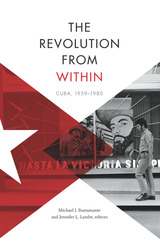
Contributors. Michael J. Bustamante, María A. Cabrera Arús, María del Pilar Díaz Castañón, Ada Ferrer, Alejandro de la Fuente, Reinaldo Funes Monzote, Lillian Guerra, Jennifer L. Lambe, Jorge Macle Cruz, Christabelle Peters, Rafael Rojas, Elizabeth Schwall, Abel Sierra Madero
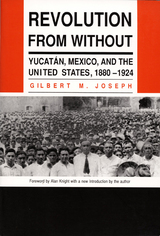
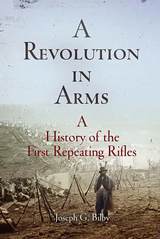
Historians often call the American Civil War the first modern war, pointing to the use of observation balloons, the telegraph, trains, mines, ironclad ships, and other innovations. Although recent scholarship has challenged some of these “firsts,” the war did witness the introduction of the first repeating rifles. No other innovation of the turbulent 1860s would have a greater effect on the future of warfare. In A Revolution in Arms: A History of the First Repeating Rifles, historian Joseph G. Bilby unfolds the fascinating story of how two New England inventors, Benjamin Henry and Christopher Spencer, each combined generations of cartridge and rifle technology to develop reliable repeating rifles. In a stroke, the Henry rifle and Spencer rifle and carbine changed warfare forever, accelerating the abandonment of the formal battle line tactics of previous generations and when properly applied, repeating arms could alter the course of a battle. Although slow to enter service, the repeating rifle soon became a sought after weapon by both Union and Confederate troops. Oliver Winchester purchased the rights to the Henry and transformed it into “the gun that won the West.” The Spencer, the most famous of all Civil War small arms, was the weapon of choice for Federal cavalrymen. The revolutionary technology represented by repeating arms used in the American Civil War, including self-contained metallic cartridges, large capacity magazines, and innovative cartridge feeding systems, was copied or adapted by arms manufacturers around the world, and these features remain with us today.
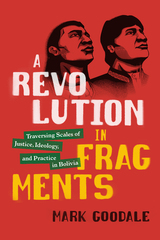

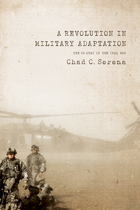
During the early years of the Iraq War, the US Army was unable to translate initial combat success into strategic and political victory. Iraq plunged into a complex insurgency, and defeating this insurgency required beating highly adaptive foes. A competition between the hierarchical and vertically integrated army and networked and horizontally integrated insurgents ensued. The latter could quickly adapt and conduct networked operations in a decentralized fashion; the former was predisposed to fighting via prescriptive plans under a centralized command and control.
To achieve success, the US Army went through a monumental process of organizational adaptation—a process driven by soldiers and leaders that spread throughout the institution and led to revolutionary changes in how the army supported and conducted its operations in Iraq. How the army adapted and the implications of this adaptation are the subject of this indispensable study. Intended for policymakers, defense and military professionals, military historians, and academics, this book offers a solid critique of the army’s current capacity to adapt to likely future adversary strategies and provides policy recommendations for retaining lessons learned in Iraq.

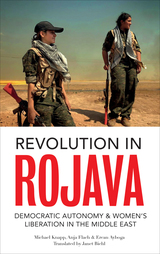
Revolution in Rojava tells the story of Rojava's groundbreaking experiment in what they call democratic confederalism, a communally organized democracy that is fiercely anti-capitalist and committed to female equality, while rejecting reactionary nationalist ideologies.
Rooted in the ideas of imprisoned Kurdish leader Abdullah Ocalan, the system is built on effective gender quotas, bottom-up democratic structures, far-sighted ecological policies, and a powerful militancy that has allowed the region to keep ISIS at bay.
Given the widespread violence and suffering in Syria, it's not unreasonable that outsiders look at the situation as unrelentingly awful. And while the reality of the devastation is undeniable, there is reason for hope in at least one small pocket of the nation: the cantons of Rojava in Syrian Kurdistan, where in the wake of war people are quietly building one of the most progressive societies in the world today. Chapters here include:
*Rojava's Diverse Cultures
*Democratic Confederalism
*The Liberation
*A Women's Revolution
*Democratic Autonomy in Rojava
*Civil Society Associations
*The Theory of the Rose: Defense
*The New Justice System
*Democratization of Education
*Health Care
*The Social Economy
*Ecological Challenges
This first full-length study of democratic developments in Rojava tells an extraordinary and powerfully hopeful story of a little-known battle for true freedom in dark times. With excellent first-hand background information about this important, but little understood struggle, Revolution in Rojava will educate and inspire the reader to learn more about Rojava, Syria, and the fight for change in one of the world’s most dangerous regions.

Only a scholar as rich in learning as I. Bernard Cohen could do justice to a theme so subtle and yet so grand. Spanning five centuries and virtually all of scientific endeavor, Revolution in Science traces the nuances that differentiate both scientific revolutions and human perceptions of them, weaving threads of detail from physics, mathematics, behaviorism, Freud, atomic physics, and even plate tectonics and molecular biology, into the larger fabric of intellectual history.
How did “revolution,” a term from the physical sciences, meaning a turning again and implying permanence and recurrence—the cyclical succession of the seasons, the “revolutions” of the planets in their orbits—become transformed into an expression for radical change in political and socioeconomic affairs, then become appropriated once again to the sciences?
How have political revolutions—French, American, Bolshevik—and such intellectual forces as Darwinism further modified the concept, from revolution in science as a dramatic break with the past to the idea that science progresses by the slow accumulation of knowledge? And what does each transformation in each historical period tell us about the deep conceptual changes in our image of the scientist and scientific activity?
Cohen’s exploration seeks to uncover nothing less than the nature of all scientific revolutions, the stages by which they occur, their time scale, specific criteria for determining whether or not there has been a revolution, and the creative factors in producing a revolutionary new idea. His book is a probing analysis of the history of an idea and one of the most impressive surveys of the history of science ever undertaken.
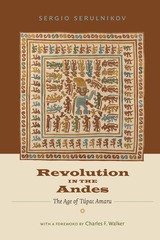
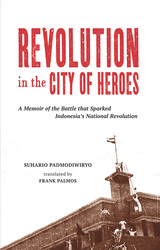
alias ‘Hario Kecik,” Revolution in the City of Heroes is an evocative first-hand
account of the popular uprising in Surabaya. It vividly portrays the chaotic swirl
of events and the heady emotion of young people ready to sacrifice their lives
for independence.
Newly liberated from nearly four brutal years under Japanese control, the
people of Indonesia faced great uncertainty in October 1945. As the British
Army attempted to take control of the city of Surabaya, maintain order and
deal with surrendered Japanese personnel, their actions were interpreted by
the young residents of Surabaya as a plan to restore Dutch colonial rule. In
response, the youth of the city seized Japanese arms and repelled the force sent
to occupy the city. They then held off British reinforcements for two weeks,
battling tanks and heavy artillery with little more than light weapons and sheer
audacity. Though eventually defeated, Surabaya’s defenders had set the stage
for Indonesia’s national revolution.



More than a decade after the publication of his dazzling book on the cultural, technological, and manufacturing aspects of measuring time and making clocks, David Landes has significantly expanded Revolution in Time.
In a new preface and scores of updated passages, he explores new findings about medieval and early-modern time keeping, as well as contemporary hi-tech uses of the watch as mini-computer, cellular phone, and even radio receiver or television screen. While commenting on the latest research, Landes never loses his focus on the historical meaning of time and its many perceptions and uses, questions that go beyond history, that involve philosophers and possibly, theologians and literary folk as well.

Is Venezuela’s Bolivarian revolution under Hugo Chávez truly revolutionary? Most books and articles tend to view the Chávez government in an either-or fashion. Some see the president as the shining knight of twenty-first-century socialism, while others see him as an avenging Stalinist strongman. Despite passion on both sides, the Chávez government does not fall easily into a seamless fable of emancipatory or authoritarian history, as these essays make clear.
A range of distinguished authors consider the nature of social change in contemporary Venezuela and explore a number of themes that help elucidate the sources of the nation’s political polarization. The chapters range from Fernando Coronil’s “Bolivarian Revolution,” which examines the relationship between the state’s social body (its population) and its natural body (its oil reserves), to an insightful look at women’s rights by Cathy A. Rakowski and Gioconda Espina. This volume shows that, while the future of the national process is unclear, the principles elaborated by the Chávez government are helping articulate a new Latin American left.
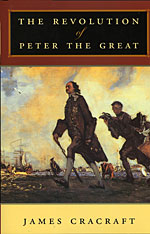
Many books chronicle the remarkable life of Russian tsar Peter the Great, but none analyze how his famous reforms actually took root and spread in Russia. In The Revolution of Peter the Great, James Cracraft offers a brilliant new interpretation of this pivotal era.
Linking together and transcending Peter's many reforms of state and society, Cracraft argues, was nothing less than a cultural revolution. New ways of dress, elite social behavior, navigation, architecture, and image-making emerged along with expansive vocabularies for labeling new objects and activities. Russians learned how to build and sail warships; train, supply, and command a modern army; operate a new-style bureaucracy; conduct diplomacy on a par with the other European states; apply modern science; and conceptualize the new governing system. Throughout, Peter remains the central figure, and Cracraft discusses the shaping events of the tsar's youth, his inner circle, the resistance his reforms engendered, and the founding of the city that would embody his vision--St. Petersburg, which celebrated its tercentenary in 2003.
By century's end, Russia was poised to play a critical role in the Napoleonic wars and boasted an elite culture about to burst into its golden age. In this eloquent book, Cracraft illuminates an astonishing transformation that had enormous consequences for both Russia and Europe, indeed the world.
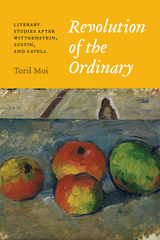
Moi first introduces Wittgenstein’s vision of language and theory, which refuses to reduce language to a matter of naming or representation, considers theory’s desire for generality doomed to failure, and brings out the philosophical power of the particular case. Contrasting ordinary language philosophy with dominant strands of Saussurean and post-Saussurean thought, she highlights the former’s originality, critical power, and potential for creative use. Finally, she challenges the belief that good critics always read below the surface, proposing instead an innovative view of texts as expression and action, and of reading as an act of acknowledgment. Intervening in cutting-edge debates while bringing Wittgenstein, Austin, and Cavell to new readers, Revolution of the Ordinary will appeal beyond literary studies to anyone looking for a philosophically serious account of why words matter.

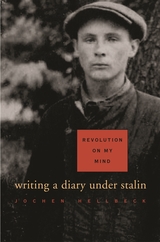
Revolution on My Mind is a stunning revelation of the inner world of Stalin’s Russia. We see into the minds and hearts of Soviet citizens who recorded their lives during an extraordinary period of revolutionary fervor and state terror. Writing a diary, like other creative expression, seems nearly impossible amid the fear and distrust of totalitarian rule; but as Jochen Hellbeck shows, diary-keeping was widespread, as individuals struggled to adjust to Stalin’s regime.
Rather than protect themselves against totalitarianism, many men and women bent their will to its demands, by striving to merge their individual identities with the collective and by battling vestiges of the old self within. We see how Stalin’s subjects, from artists to intellectuals and from students to housewives, absorbed directives while endeavoring to fulfill the mandate of the Soviet revolution—re-creation of the self as a builder of the socialist society. Thanks to a newly discovered trove of diaries, we are brought face to face with individual life stories—gripping and unforgettably poignant.
The diarists’ efforts defy our liberal imaginations and our ideals of autonomy and private fulfillment. These Soviet citizens dreamed differently. They coveted a morally and aesthetically superior form of life, and were eager to inscribe themselves into the unfolding revolution. Revolution on My Mind is a brilliant exploration of the forging of the revolutionary self, a study without precedent that speaks to the evolution of the individual in mass movements of our own time.
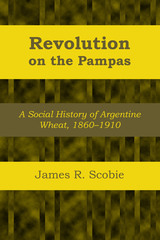
On the Argentine pampas, between the years 1860 and 1910, a dramatic social and agricultural revolution took place. The haunts of wild cattle, native peoples, and gauchos were transformed into cultivated fields and rich pastures. A land that had produced only scrawny sheep and cattle became one of the world’s leading exporters of wheat, corn, beef, mutton, and wool. A country that had had only a sparse and scattered Spanish and mestizo population now boasted a metropolis of one and a half million, and a national population of eight million people, nearly a third of whom were born in Europe. These were significant changes, and wheat growing played a major role in all of them. This study traces the development of the Argentine wheat zone, focusing on the part wheat played in forming the Argentina of today.
James R. Scobie begins his account with the first settlers who colonized Santa Fe in the 1850s and shows how they and thousands of other European immigrants converted this vast grassland into a world breadbasket. He explains why these small farmer-owners soon gave way to tenant farmers, and how crop farming developed primarily as servant to the predominant sheep and cattle interests. He expands on several factors responsible for this evolvement: the elimination of indigenous threat, the coming of the railroad, the agricultural policy—or lack of policy—of the Argentine government, and the urban orientation of the Argentine people.
The railroads, by suppressing the building of other roads through the pampas, had the effect of isolating the wheatgrowers. By making the products of the pampas available to world markets, the railroads opened up new trade, which helped the growth of cities tremendously; but this very prosperity pushed the cost of land far beyond the wheatgrower’s ability to buy it. The result was a pampas without settlers, a frontier filled with migrant sharecroppers and tenant farmers, a land exploited but not possessed. Transiency as well as isolation became the common denominators of these families, who were forced to move every few years to make way for more valued tenants—sheep and cattle. They left behind them no schools, no churches, no roads, no villages. Immigrants came to labor but not to sink their roots in the pampas.
Without sentimentality but with understanding and compassion, Scobie explores every facet of the lives of these laborers who created Argentina’s agricultural greatness. His examination of Argentina’s broad policies toward land, immigration, and tariffs shows that the national government had little lasting or effective interest in the country’s agricultural development. In a social sense, the thousands of immigrants who toiled the pampas were looked upon as the wild cattle or fertile soil—blessings which neither needed nor warranted official attention. Scobie’s conclusion is that Argentina got better than it deserved.
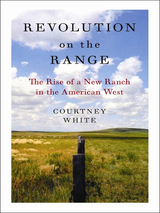
In Revolution on the Range, Courtney White challenges that truism, heralding stories from a new American West where cattle and conservation go hand in hand. He argues that ranchers and environmentalists have more in common than they’ve typically admitted: a love of wildlife, a deep respect for nature, and a strong allergic reaction to suburbanization. The real conflict has not been over ethics, but approaches. Today, a new brand of ranching is bridging the divide by mimicking nature while still turning a profit.
Westerners are literally reinventing the ranch by confronting their own assumptions about nature, profitability, and each other. Ranchers are learning that new ideas can actually help preserve traditional lifestyles. Environmentalists are learning that protected landscapes aren’t always healthier than working ones. White, a self-proclaimed middle-class city boy, has learned there’s more to ranching than grit and cowboy boots.
The author’s own transformation from conflict-oriented environmentalist to radical centrist mirrors the change sweeping the region. As ranchers and environmentalists find common cause, they’re discovering new ways to live on—and preserve—the land they both love. Revolution on the Range is the story of that journey, and a heartening vision of the new American West.
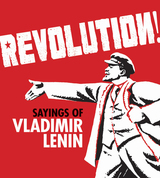
Revolution! Sayings of Vladimir Lenin is a compilation of Lenin’s most famous sayings, taken from speeches, lectures, letters, and recorded conversations. Together, they show his views on topics ranging from democracy to terrorism, from religion to Stalin’s untrustworthiness, and from education to music. Accompanied by a range of striking images, including contemporary propaganda posters, photographs, portraits, illustrations, and Soviet art, these aphoristic proclamations offer an insight into the atmosphere of pre- and post-revolutionary Russia and the mind of one of the twentieth century’s most defining political figures.
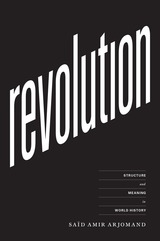
In this authoritative new book, Saïd Amir Arjomand reaches back to antiquity to propose a unified theory of revolution. Revolution illuminates the stories of premodern rebellions from the ancient world, as well as medieval European revolts and more recent events, up to the Arab Spring of 2011. Arjomand categorizes revolutions in two groups: ones that expand the existing body politic and power structure, and ones that aim to erode—but paradoxically augment—their authority. The revolutions of the past, he tells us, can shed light on the causes of those of the present and future: as long as centralized states remain powerful, there will be room for greater, and perhaps forceful, integration of the politically disenfranchised.

Winner, McGannon Communications Research Award, 2004
In 1971, the Sloan Commission on Cable Communications likened the ongoing developments in cable television to the first uses of movable type and the invention of the telephone. Cable's proponents in the late 1960s and early 1970s hoped it would eventually remedy all the perceived ills of broadcast television, including lowest-common-denominator programming, inability to serve the needs of local audiences, and failure to recognize the needs of cultural minorities. Yet a quarter century after the "blue sky" era, cable television programming closely resembled, and indeed depended upon, broadcast television programming. Whatever happened to the Sloan Commission's "revolution now in sight"?
In this book, Megan Mullen examines the first half-century of cable television to understand why cable never achieved its promise as a radically different means of communication. Using textual analysis and oral, archival, and regulatory history, she chronicles and analyzes cable programming developments in the United States during three critical stages of the medium's history: the early community antenna (CATV) years (1948-1967), the optimistic "blue sky" years (1968-1975), and the early satellite years (1976-1995). This history clearly reveals how cable's roots as a retransmitter of broadcast signals, the regulatory constraints that stymied innovation, and the economic success of cable as an outlet for broadcast or broadcast-type programs all combined to defeat most utopian visions for cable programming.
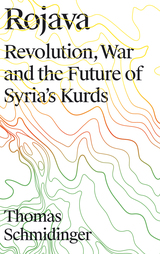
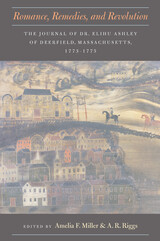
With flashes of humor and close attention to detail, Ashley describes a broad range of activities and experiences in the small village of Deerfield and the surrounding towns of the Connecticut River valley. Articulate as well as observant, this former schoolteacher conveys a sense of immediacy that brings even the most mundane daily events to life. He discusses medical theory and practice, revolutionary politics, farming, his family, his circle of friends, and amusements ranging from singing and dancing to sleigh riding and bouts of drunkenness. He also writes about his love life, including a dalliance with the older sister of his fiancee, Polly Williams, while the latter is away visiting relatives in the Berkshires.
For Ashley, personal relationships and politics were the prominent issues of 1773 and 1774, as events in Massachusetts drew the province toward rebellion. He discusses the gathering of angry mobs in response to the so-called Intolerable Acts, the stoppage of the courts in Hampshire County, the anarchy that ensued, and the persecution of loyalists, with or without the sanction of law. When the revolution breaks out in April 1775, he describes the departure of companies of minutemen as they set out for Boston to challenge the British Army.
Six months later, in November 1775, the journal abruptly ends. By then, however, Elihu Ashley had already bequeathed to posterity an extraordinary firsthand account of life in rural New England in the years immediately preceding the War of Independence.
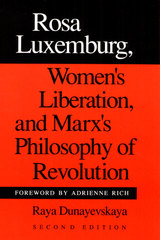
In this important and wide-ranging critique of Rosa Luxemburg (1871-1919) Raya Dunayevskaya examines the life, political thought, and action of one of the most critical revolutionary figures of our time. Dunayevskaya sheds new light on the questions of socialist democracy after the revolution, disclosing both the unprobed feminist dimension of Rosa Luxemburg and the previously unrecognized new moments in Marx's last decade concerning the role of women and the peasantry. As the founder of Marxist-Humanism in the United States, Dunayevskaya (1910-87) was an internationally respected writer, philosopher, and revolutionary. This new and expanded edition includes two previously unpublished articles by Dunayevskaya, including her "Challenge to all Post-Marx Marxists."

Long recognized as the best and most comprehensive work on its subject, Brown’s fine book is now thoroughly revised and updated. It provides a comprehensive treatment of Russian literature, including underground and émigré writings, from 1917 to the early 1980s.
Every stage in the evolution of Russian literature since 1917, every major author, all the important literary organizations, groups, and movements, are sharply outlined, with a wealth of often unfamiliar detail and a notable economy of means. Critical essays on Mayakovsky, Zamyatin, Olesha, Pasternak, Brodsky, Solzhenitsyn, Rasputin, Erofeev, and many others offer sophisticated formal and thematic analyses of a very large array of literary masterpieces.
The book examines and makes intelligible the persistent conflict between the writer and the state, between the literary artist’s urge for untrammeled self-expression and the pervasive control of intellectual activity exercised by the Soviet government. Chapters on “The Levers of Control under Stalin,” “The First Two Thaws,” “Into the Underground,” and “Solzhenitsyn and the Epic of the Camps” reveal the conditions under which Russian literature was produced in various periods and investigate the forces that drove an important segment of the literature into clandestine publication or into exile. “Exiles, Early and Late” deals with some of the leading figures in émigré literature and examines the condition of exile as an influence on literary creation. “The Surface Channel” describes and analyzes a number of significant works published aboveground in the Soviet Union during the sixties and seventies. Brown abandons the old distinction between Soviet and émigré literature, treating all Russian writing as part of a single stream, divided since 1917 into two currents not totally separate but subtly interrelated.
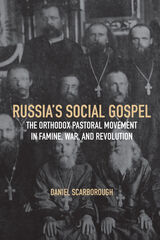
This volume draws upon extensive archival research to examine the effects of the pastoral movement on Russian society and the Orthodox Church. Scarborough argues that the social work of parish clergymen shifted the focus of Orthodox practice in Russia toward cooperative social activism as a devotional activity. He furthers our understanding of Russian Orthodoxy by illuminating the difficult position of parish priests, who were charged with both spiritual and secular responsibilities but were supported by neither church nor state. His nuanced look at the pastorate shows how social and historical traumas shifted perceptions of what being religious meant, in turn affecting how the Orthodox Church organized itself, and contributed to Russia’s modernization.
READERS
Browse our collection.
PUBLISHERS
See BiblioVault's publisher services.
STUDENT SERVICES
Files for college accessibility offices.
UChicago Accessibility Resources
home | accessibility | search | about | contact us
BiblioVault ® 2001 - 2024
The University of Chicago Press









